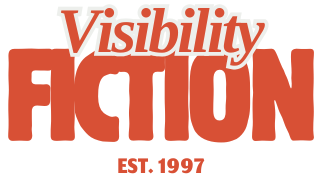Human beings have wanted to know the truth for quite some time now. Being obsessed with truth and finding out what truth is has been the very need of many philosophers of Greece and scientists around the world for centuries. We have been trying to understand the straightforward question: what is the truth?? But as much as we long to hold on to it, the truth is elusive, maybe even unknowable, but some of us can’t really digest that fact; we need to know. What we call truth might be nothing more than a temporary consensus, a working model, or a story that is less wrong than the previous one.
It’s such a humbling idea; we live in the era of dressing up opinions as facts, where algorithms claim to know us better than ourselves. In all this noise, we tend to forget a core philosophical reality; we see the world as we are, not the way it is!
Our own mind and reality blind all of our perceptions.
All perception is mediated. Our eyes filter light, our brains edit sensory information, and our minds attach meaning based on past experiences and inherited biases. Even in science, the closest thing we have to an objective method is that we do not confirm truths—we falsify errors. Karl Popper, one of the 20th century’s great philosophers of science, argued that a scientific theory is never proven—it just hasn’t been proven wrong yet. Every law, every theorem, every elegant equation that seems to explain the universe is sitting on a conditional throne: it reigns only until a better explanation comes along.
This is not a flaw in human thinking—it is the very engine of our intellectual evolution. Being wrong and then being less bad is how progress works. The Earth was once flat, then round but stationary, then orbiting the Sun, then spinning through a galaxy. Each stage wasn’t a lie—it was just the best approximation available at the time. Newton’s laws worked perfectly until Einstein came along and showed us that time and space bends. One day, perhaps, Einstein’s elegant equations will also be replaced—not because they were false, but because they weren’t quite true enough.
Truth, then, is not a fixed destination. It’s a moving horizon. You can walk toward it forever, but it will always recede a little further. The map is never the territory. Our models are not the world; they are sketches—partial, provisional, and prone to error.
But this is not a reason to despair. In fact, it is a reason to be curious, humble, and open-minded. If we accept that we’ll never fully know the truth, we are free to ask better questions, to hold our beliefs lightly, and to stay skeptical of dogma. Certainty is often the enemy of growth. The person who is sure they are right has no reason to listen, no need to explore, and no capacity for surprise.
In a world obsessed with being right, perhaps our real task is to become more comfortable being wrong—so long as we are less wrong tomorrow than we were today. It’s a kind of intellectual asymptote: always approaching truth, never arriving, but drawing ever closer.
This mindset demands resilience. It means accepting that even our deepest convictions might be flawed. It means being willing to revise our worldview in the face of new evidence, even when it’s painful. It means saying, “I don’t know,” not as an admission of defeat but as a mark of integrity.
Imagine a society built on the premise that no one has the final word—that truth is a process, not a possession. Debates would be less about winning and more about refining ideas. Science would not be politicized, and politics might even become more scientific. Education wouldn’t reward having the right answers but learning how to ask better questions.
We may never know the full truth. But we can learn to spot the lies. We can discard what doesn’t work. We can update our models. We can move forward, step by step, toward a clearer understanding—not perfect, but less wrong.
And maybe that’s the most honest thing we can do.

Leave a Reply